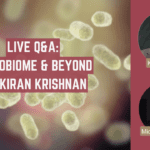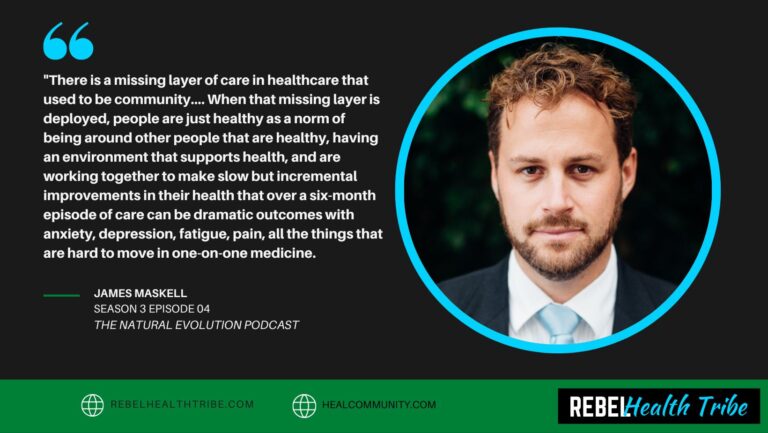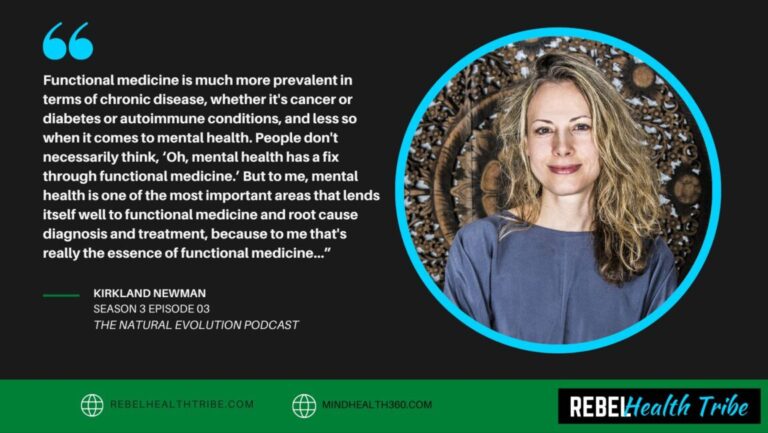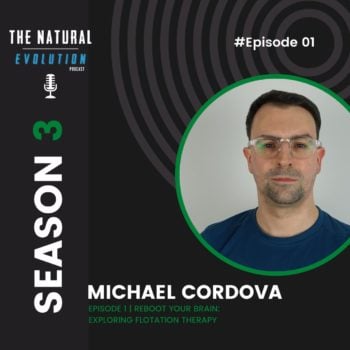

More Posts from
AutoImmune & Chronic Disease

Genetics and Hormone Production, Transport, Utilization, and Metabolism
Our genetics play a larger role in our hormones than
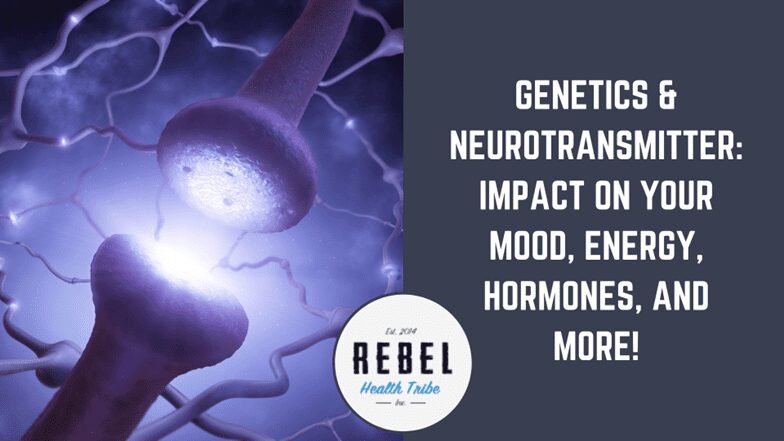
Genetics & Neurotransmitters: Impact on Your Mood, Energy, Hormones, and More!
Have you wondered why an antidepressant didn’t work for you?

Genetics and Detoxification: Your genes are key to knowing what detox protocol will best suit your body.
https://vimeo.com/821487331 If you’ve ever bought a detox kit off
IBS? Your Doctor Might Be Missing This Cause. Between 24 and 45 million people in America suffer from IBS, according to the International Foundation for Functional Gastrointestinal Disorders
I believe that if infections by parasites such as Blastocystis hominis and Dientamoeba fragilis were correctly diagnosed, around 50% of the IBS market would disappear.
In my clinical practice and through my work with the respected American parasitologist, Dr Omar Amin of Parasitology Center Inc., I have studied many research papers and patient case studies. Parasites are often a ‘silent’ infection. I say ‘silent’ because parasites are an often undiagnosed problem. Many people are not aware of them, and there is a misconception amongst doctors and the general public alike that parasites occur only in third world countries.
I also teach practitioners about the world of parasites, fungus and bacteria and lecture on the topic. A recent invitation to talk at the CAM Summit in the UK gave me the opportunity to discuss the link between parasites and IBS – one of the most common reasons for a patient to visit a holistic health practitioner.
Parasites and IBS
IBS is a very common and often misdiagnosed problem, and many of the symptoms of parasite infection are similar, or identical to IBS.
IBS is characterised by chronic abdominal pain, discomfort, bloating, and alteration of bowel habits in the absence of any known organic cause. Signs of a parasite infection include all of these IBS-like symptoms and patients also report dizziness and fatigue, skin rashes and different forms of arthritis. (ref 11, 12, 12, 8)
Past research has suggested that the parasite most frequently found in people diagnosed with IBS – Blastocystis hominis – isn’t the cause of the patient’s IBS symptoms. This is because some individuals who test positive for Blastocystis hominis don’t exhibit any symptoms at all.
However, new research and a review of existing research has put this parasite back under the microscope.
Research suggests that parasitic organisms act as etiologic agents of gut inflammation and dysfunction. One study found B. hominis to be present four times more frequently in IBS patients compared with control subjects. Also, IBS symptoms were resolved in 80% of patients when B. hominis was treated.
Blastocystis hominis and IBS – the research
Here are some of the pertinent facts proven through a number of different research studies:
- Over 50% of IBS patients tested have the parasite B.hominis (ref 1, 2)
- B.hominis is the most prevalent parasite found in IBS-related studies (ref 3, 4, 5)
- The symptoms of B.hominis, D.fragilis and IBS are identical (ref 6)
- Both B.hominis and D.fragilis, or either parasite are found in up to 30% of people suffering from irritable bowel (ref 7, 8)
D. fragilis is known to cause IBS-like symptoms. (ref 9). These include, but are not limited to, abdominal pain, diarrhoea, constipation, gas, upset stomach or nausea and D. fragilis has the propensity to cause chronic infections.
Its diagnosis relies on microscopy of stained smears, which unfortunately many laboratories do not perform, thereby leading to the misdiagnosis of Dientamoebiasis as IBS. (ref 9) Parasite Testing Inc. in Arizona does carry out microscopy of stained smears and can correctly diagnose D. fragilis.
When Blastocystis hominis exists with other pathogens, it has been implicated in severe chronic conditions e.g. IBS, chronic fatigue and different forms of arthritis. (ref 11, 12, 13, 8)
Wellbeing factors and sub-types of B. hominis
As previously mentioned, many people infected with B. hominis have no symptoms at all. The organism can be found in both well and sick people. (ref 10). This is one of the reasons it has been dismissed as causing IBS, and certainly the reason why it does not cause IBS in every person needs to be explored in more depth.
There are 13 documented subtypes of B. hominis and some of these are more associated with IBS-type symptoms than others. That might explain why the parasite is present in some people without causing gastrointestinal problems.
However, many other contributing factors affect the chances of picking up a parasite and the impact it can have on the body.
Poor or low wellbeing and poor lifestyle choices, poor nutrition, a weakened immune system, chronic stress and use of certain medications are just a few factors that can make the difference between a patient falling ill from a parasite infection or remaining well.
As well as personal wellbeing, the health of family pets should also be considered. If their health is poor they are more likely to pick up an infection which can be passed on to their owners, particularly if their personal hygiene is also lax.
International travel is also a factor, but don’t assume parasites are just prevalent in poor or third world countries; they are far more widespread than most people realize. Again, personal hygiene will be a factor.
Tip of the iceberg
In 2013 the British Journal of Medical Practitioners showed that IBS is estimated to affect 17% of the UK population but also that 33% to 90% of patients with IBS-like symptoms do not consult a physician. It also showed that a significant proportion of patients who meet the IBS criteria are not diagnosed with IBS.
It stands to reason that the 17% is a very underestimated figure. We cannot tell what proportion of those patients have a parasite infection, but it would be logical to assume that many people could be free of symptoms if there were a greater awareness of parasites and more widespread, accurate testing.
Conclusions
Health practitioners and the general public both need to be aware of parasite symptoms so that they can question what might be behind their own or a patient’s health challenges.
Testing with a reliable and specialist laboratory to confirm or rule out parasites as a causative factor is the next step.
The Parasitology Centre Inc. (PCI) in America is the most renowned and respected parasitology lab in the world.
PCI performs one of the most accurate, comprehensive stool analyses available and detects other non-parasitic structures that represent bio-indicators to physiological or pathological conditions.
Without testing, you are likely to miss vital pieces of information that can be contributing to the patients’ health and wellbeing challenges. Health practitioners in Europe can also access these clinical tests via Parasite Testing Europe.
Don’t miss the chance to study with Emma Lane this year. Only one USA date in 2016.
The World of Fungus, Parasites and Bacteria Level 1. 8th – 9th October, – Carlsbad, California.
Study the many signs, symptoms and effects of common parasites and fungus. Learn Emma Lane’s unique approaches to effectively eradicating parasite and fungal infections, when and how to test and how to interpret the PCI Inc. test results.
The two-day course will explore how parasites and fungus can wreak havoc in the human body.
• Recognise parasite signs and symptoms, growth cycles, how they are contracted and eradication options;
• Learn how to deal with parasitic and fungal pathogenic infections and imbalances;
• Find out how to restore wellbeing when parasite infections are diagnosed.
[button link=”http://www.integrativehealth.co.uk/integrative-health-education-courses/the-world-of-parasites-fungus-and-bacteria-level-1/” type=”big” newwindow=”yes”] Book Now![/button]
“I love taking Emma’s courses! I find her approach respectful, clear, dynamic and well organised. She always gives all the attention required by the participants. I love the fact that she’s innovative and provides information from the science sources all adapted for us. Thank you Emma.”
Mariya Teneva – World of Parasites, Fungi and Bacteria – Level 1 – May 2014
About Emma Lane ND, Dip NT
Emma Lane is the founder and director of the Lane Wellness Group which includes the training organisation Integrative Health Education and her practice Energize Mind Body. She is recognized as one of the UK’s leading holistic health and lifestyle experts and has trained extensively in Europe and America.
Emma is a naturopath with over 25 years’ experience in holistic health combining many different healing methodologies. For the last 12 years she has spent a significant proportion of her clinic time working with clients who have parasite and fungal infections, consistently achieving positive outcomes through natural, bespoke treatment methods.
References
1 Yakoob J, Jafri W, Jafri N, et al. Irritable bowel syndrome: in search of an etiology: role of Blastocystis hominis. Am J Trop Med Hyg. 2004 Apr;70(4):383-5. PMID: 15100450 [PubMed – indexed for MEDLINE]
2 Yakoob J, Jafri W, Jafri N, Islam M, and Asim Beg M. In vitro susceptibility of Blastocystis hominis isolated from patients with irritable bowel syndrome. Br J Biomed Sci. 2004;61(2):75-7. PMID: 15250669
BJMP 2013;6(1):a608
3 Roberts et al. Update on the pathogenic potential and treatment options for Blastocystis sp. Gut Pathog. 2014; 6:7
4 Baron S. Medical Microbiology 4th Edition. University of Texas Medical Branch. Galveston. ISBN: 0-9631172-1-1. 1996.
5 Qadri SM, al-Okaili GA, and al-Dayel F. Clinical significance of Blastocystis hominis. J Clin Microbiol. 1989 Nov;27(11):2407-9.
6 Windsor JJ. B. hominis and D. fragilis: Neglected human protozoa. The Biomedical Scientist. July 2007:524–527.
7 Yakoob J, Jafri W, Beg MA, et al. Blastocystis hominis and Dientamoeba fragilis in patients fulfilling irritable bowel syndrome criteria. Parasitol Res. 2010 Aug;107(3):679-84. doi: 10.1007/s00436-010-1918-7. Epub 2010 Jun 8.
8 Yakoob J, Jafri W, Jafri N, Islam M, and Asim Beg M. In vitro susceptibility of Blastocystis hominis isolated from patients with irritable bowel syndrome. Br J Biomed Sci. 2004;61(2):75-7. PMID: 15250669
9 Stark D, van Hal S, Marriott D, Ellis J, Harkness J. Irritable bowel syndrome: a review on the role of intestinal protozoa and the importance of their detection and diagnosis. Int J Parasitol. 2007 Jan;37(1):11-20. Epub 2006 Oct 12.
10 Grossman I, Weiss LM, Simon D, Tanowitz HB, Wittner M. Blastocystis hominis in hospital employees. Am J. Gastroenterology 1992 June;87(6):729-32.
11 Charles H. Zierdt. Blastocystis hominis – Past and Future. Clinical Micro. Reviews. Jan 1991, p. 61-79.
12 Stenzel DJ and Boreham PF. Blastocystis hominis revisited. Clinical Micro. Reviews. Oct. 1996, Vol. 9, No. 4. p. 563–584
13 Lee, et al., Trends in Intestinal Parasitology Part II – Commonly Reported Parasites and Therapeutics. Practical Gastroenterology Vol XV1 No 10.
FEATURED PRODUCTS
-
MegaSporeBiotic
$59.99 – $176.95MegaSporeBiotic™ is a 100% spore-based, broad-spectrum probiotic shown to be...
-
MegaSporeBiotic For Kids Gummies
$39.00MegaSporeBiotic™ Gummies are a 100% spore-based proprietary probiotic blend that...
-
MegaMucosa
$59.99MegaMucosa is the first complete mucosal support supplement of its...
-
MegaPre Prebiotics Powder
$59.99MegaPreBiotic™ is the first Precision Prebiotic™ supplement made up of...
Get Social
Recent Podcasts
Recent Courses
Autoimmune Masterclass 2024
Autoimmune Masterclass brings together 17 of the world’s
Toxicity & Detoxification Masterclass
The toxicity and Detoxification Masterclass covers a wide

5-Week Functional Neurology w/ Dr. Jared Seigler
Learn how to improve your brain health and
Brain & Nervous System Masterclass
16 Leading Experts Share Cutting-Edge Science, Effective Practices,
Get the RHT Newsletter
Be the first to get access to special offers, new podcasts, courses, products and events from Rebel Health Tribe.
Facebook
Twitter
Pinterest
LinkedIn
Reddit
WhatsApp
Telegram
StumbleUpon
-
MegaSporeBiotic
$59.99 – $176.95MegaSporeBiotic™ is a 100% spore-based, broad-spectrum probiotic shown...
-
MegaSporeBiotic For Kids Gummies
$39.00MegaSporeBiotic™ Gummies are a 100% spore-based proprietary probiotic...
-
MegaMucosa
$59.99MegaMucosa is the first complete mucosal support supplement...
-
MegaPre Prebiotics Powder
$59.99MegaPreBiotic™ is the first Precision Prebiotic™ supplement made...
Autoimmune Masterclass 2024
Autoimmune Masterclass brings together 17 of the world’s leading doctors, researchers, and experts on autoimmune diseases who each present their
Toxicity & Detoxification Masterclass
The toxicity and Detoxification Masterclass covers a wide array of topics with the following guests: 1. Lara Adler, Environmental Toxins
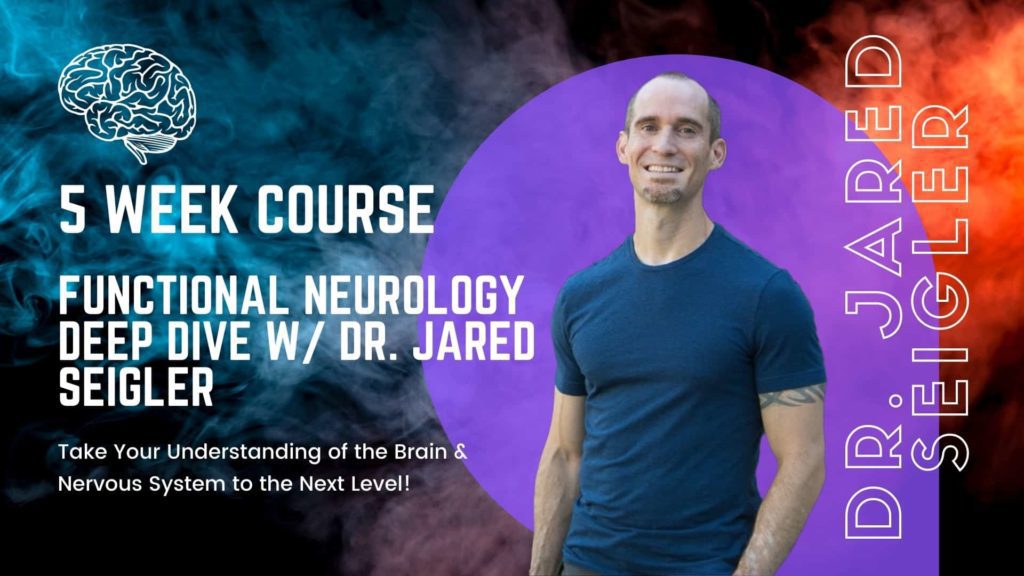
5-Week Functional Neurology w/ Dr. Jared Seigler
Learn how to improve your brain health and function with this Functional Neurology course from Dr. Jared Seigler.
Dr. Seigler
Emma Lane
Emma is the founder and director of Integrative Health Education and Energize Mind Body. She is recognized as one of the UK’s leading holistic health and lifestyle experts and has trained extensively in Europe and America.
View All Author Posts



